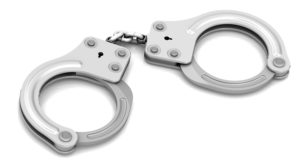 If you have been accused of engaging in certain types of criminal activity, you are not only at risk of jail time and other penalties associated with that offense. You are also at risk of potentially losing any property that you may have utilized to commit that crime. Forfeiture laws allow the state to take real property and personal property, including vehicles, which were used to engage in criminal acts.
If you have been accused of engaging in certain types of criminal activity, you are not only at risk of jail time and other penalties associated with that offense. You are also at risk of potentially losing any property that you may have utilized to commit that crime. Forfeiture laws allow the state to take real property and personal property, including vehicles, which were used to engage in criminal acts.
There is a lot at stake when accused of serious criminal offenses. Your freedom could be lost if you’re convicted and found guilty of a criminal offense. The financial loss from forfeiture could also be devastating to your financial security. You need to ensure you get the right legal help to fight the charges and try to protect your wealth.
When you need a Nevada defense attorney that you can count on to fight for you, call LV Criminal Defense.
Nevada law allows for forfeiture under certain circumstances, including when property or money is obtained as a result of the commission of a crime. Even property that you purchased lawfully could potentially be subject to forfeiture if law enforcement believes that you used that property in the commission of certain offenses.
N.R.S. 179.121 explains some circumstances under which property may be forfeited due to its use in criminal activity. According to N.R.S. 179.121, all personal property is potentially subject to forfeiture, including tools, weapons, substances, computers, money, securities, and conveyances such as vehicles and vessels.
Property is not necessarily going to be subject to forfeiture if is used to commit minor criminal offenses. The relevant statute allowing for forfeiture lists the types of crimes that could result in forfeiture of property used to commit those particular illegal acts. For example, property can be taken if it was used to:
Nick Wooldridge has a long track record of representing clients accused of serious federal and state crimes in Nevada.
There are also other criminal offenses listed in N.R.S. 179.121 that could create grounds for forfeiture if property was used to commit those particular crimes. You should ask your attorney if forfeiture is a possibility in your situation, based on the specific charges that you are facing.
Although Nevada law allows for forfeiture of property in a broad array of situations where property is obtained because of a crime or used to commit a crime, there are some exceptions.
One big exception relates to property connected with a crime, when the actual owner of that property wasn’t aware of the crime being perpetrated or planned. In other words, if someone uses your car to go and kidnap someone or uses your computer to commit a technological crime, you won’t necessarily lose your car and computer to forfeiture.
Whether you can keep your stuff or not will be determined, in large part, by whether you knew what was going on or were willfully blind. If you were willfully blind and intentionally failed to take an objective look at whether conduct suggested criminality, then forfeiture is still a possibility.
Nick Wooldridge and LV Criminal Defense understands Nevada’s laws on forfeiture. Our legal team can help you to determine what property is at risk and can work on your behalf to argue that your property should not be seized from you. Our Nevada defense attorneys also help you to try to avoid a guilty verdict or at least to reduce possible consequences through effective plea bargaining.
When I initially met with Mr. Wooldridge, he took the opportunity to sit and go over my problem with me. He described details in my case which he found disturbing and explained why he I should have him on my side.
To find out more about how our legal team can assist you in fighting charges and protecting you property, give us a call today.